Feeding cucumbers with ash
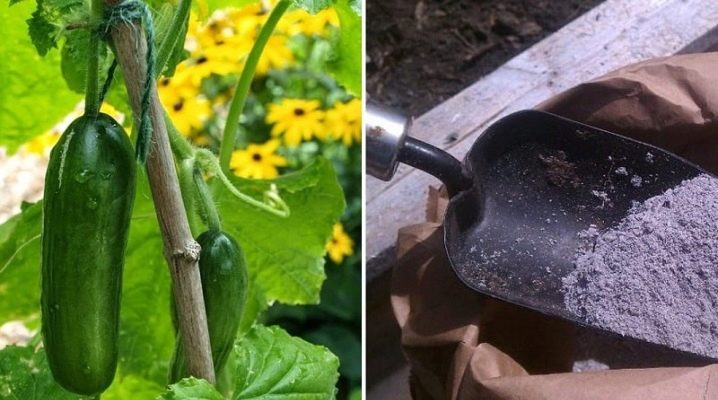
Wood ash is an effective cucumber fertilizer that many gardeners love. The natural product allows not only to improve the yield of the beds, but also to protect them from various pests.
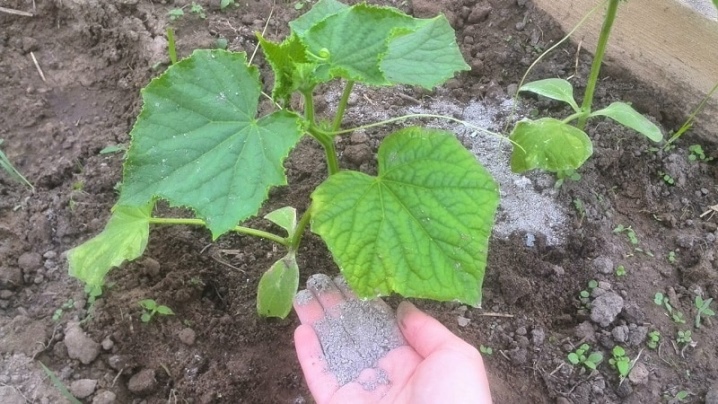
Benefit and harm
Ash has been used to fertilize plots for a very long time. Therefore, most gardeners know that it has a lot of advantages. It has many useful functions.
- Increases crop yield. Cucumbers, fed with quality wood ash, bear fruit much better.
- Strengthens cucumber whips. Due to the fact that they become more durable, plants feel better in bad weather.
- Improves the appearance of plants. The foliage of the cucumbers becomes dark and beautiful.
- Makes the culture more resistant to temperature changes. Cucumbers, fed with ash in time, tolerate drought better.
- Protects plants from pests... Wood ash can be used both for control and prevention.
- Makes cucumbers resistant to infectious diseases... Very often, gardeners feed the beds with ash just to protect plants from rot and other similar diseases.
- Improves soil quality. Wood ash is a versatile fertilizer that can be applied to almost any soil. The only exception is alkaline. Most of all, peatlands and light sands need such fertilizer.
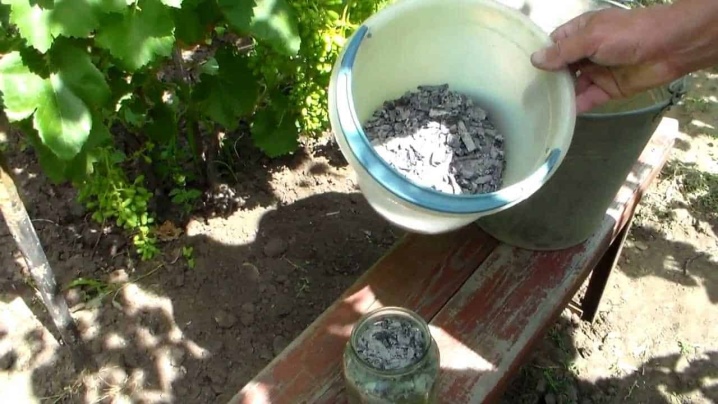
In general, cucumbers love ash. Therefore, they always respond well to feeding based on it.
Wood ash can harm cucumbers only if it is used incorrectly.
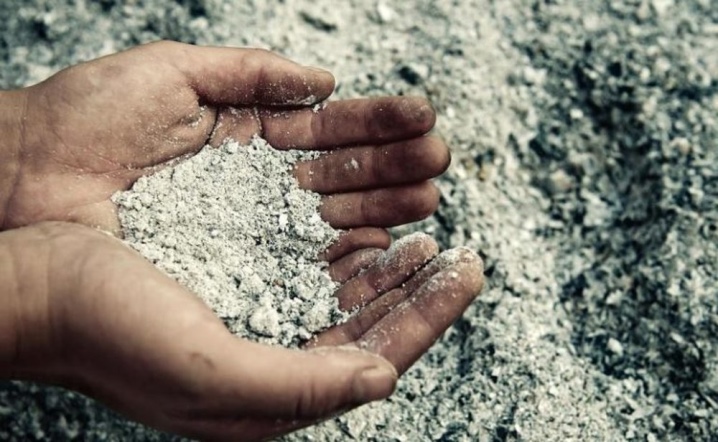
How to breed?
Before adding ash to the soil, it must be properly prepared. There are several ways to do this.
Ash solution
The simplest product that is used for feeding cucumbers growing in the open field or in a greenhouse is the classic ash solution. To prepare it, a glass of dry ash must be diluted in 10 liters of water. The contents of the container must be mixed, and then infused for a week. The resulting product can be used immediately to water the bushes.
If the gardener has more free time, he can also prepare a quality decoction from dry ash. To do this, pour the wood ash with boiling water in a ratio of 3 to 1. The resulting mixture must be infused for several days. Immediately after this, the product must be filtered and poured into a spray bottle. Some gardeners additionally boil the resulting product for half an hour.
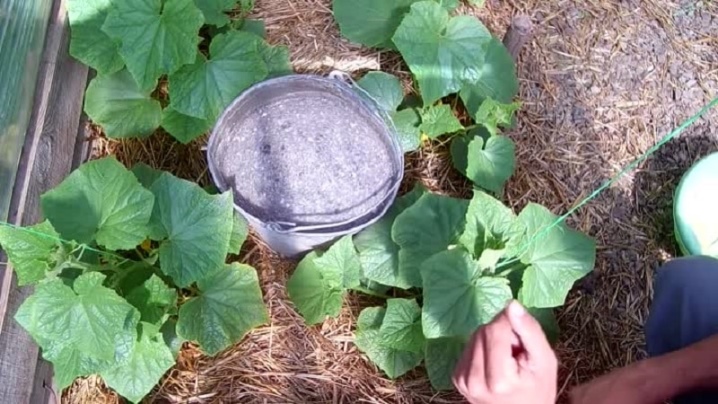
With herbal tea
This product is also very popular among gardeners. To prepare it, you need to collect green nettles and fill a third of an empty bucket with it. Greens should be poured with water at room temperature. You can use rainwater for this. After that, 200 grams of dry ash should be added to the container. The product must be infused for two weeks. From time to time, this infusion must be stirred.
Before cooking, the tincture must be diluted in a ratio of 1 to 10. You can feed the site with such a product no more than once a week.
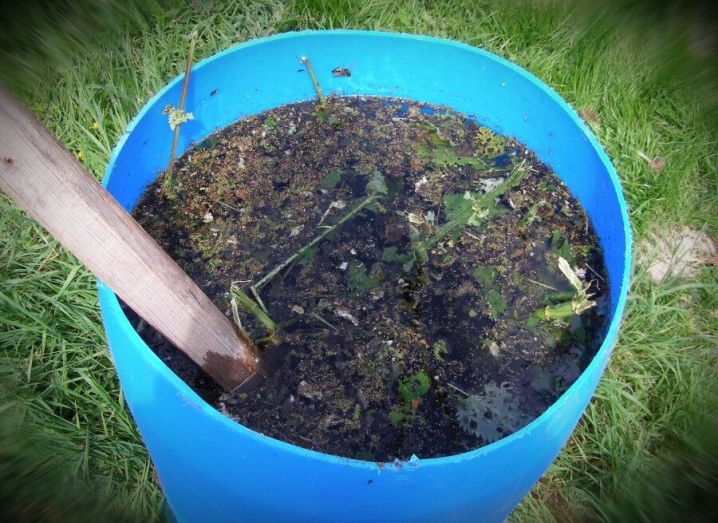
With soap
Adding laundry soap to the mixture of ash and water is beneficial to the product. Such a remedy lasts longer on plants. Due to this, the product also helps to protect the crop from the effects of aphids.
A soap-based product is prepared from a glass of wood ash and a liter of clean water.The product is infused for 2-3 days, and then poured into a ten-liter bucket. Clean water is added there by adding 100 grams of grated laundry soap.
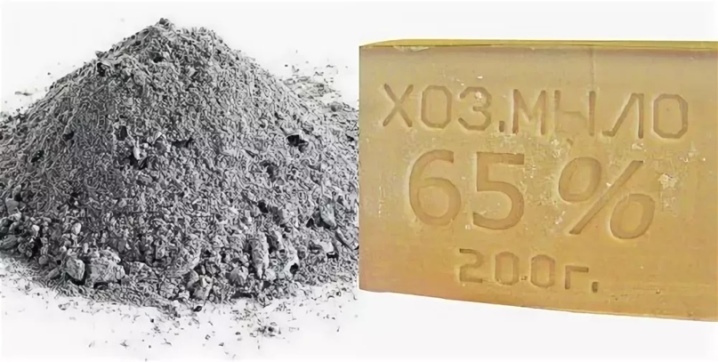
With iodine
Well suited for feeding cucumbers and iodine-ash solution... To prepare it in a bucket of water, you need to dilute 300 grams of dry ash. You also need to add 30 drops of iodine there. After mixing, this infusion must be sent to a dark place for two days.
The ready-made infusion can be used to fertilize the area with the beds. Top dressing can be applied to the soil every 12-14 days.
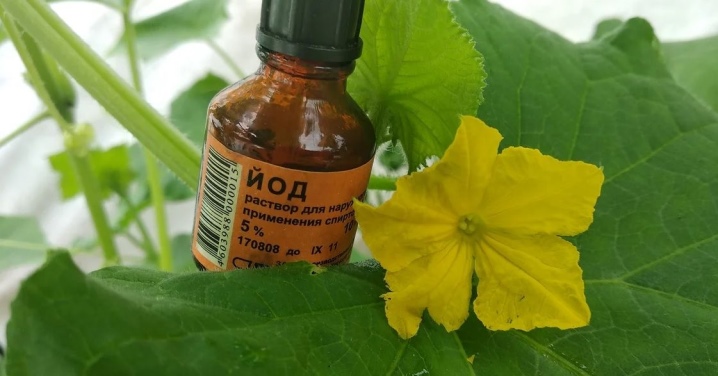
With yeast
The recipe with ash and yeast is also popular among gardeners. Such a product can significantly speed up the fruiting process of cucumbers.
To prepare the solution, you need to warm up 3 liters of water. It should be warm, but not hot. In this water, you need to dilute 100 grams of yeast. After that, add the same amount of ash and sugar to the container. All components must be thoroughly mixed and sent to a warm room for three days. Before use, the product can not be filtered, but it must be diluted. For this, 1 glass of the product is mixed with 4 glasses of pure water.
This composition saturates the soil with calcium and potassium. Use yeast only on warm days. Otherwise, there will be no benefit from feeding.
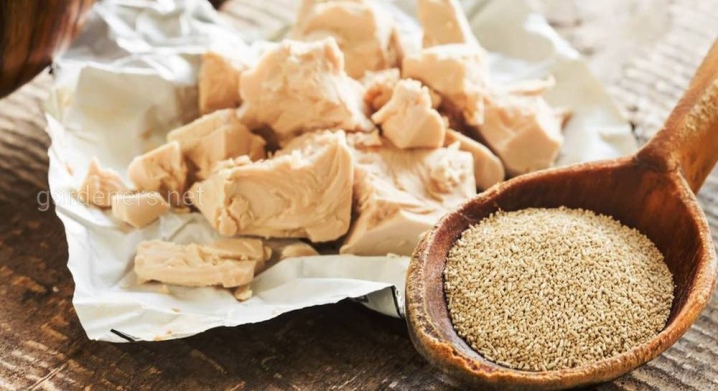
How to use for fertilization?
There are many ways to use wood ash for plant nutrition.
Watering
Most often, the beds with cucumbers are simply watered. The amount of watering depends on the condition of the soil, as well as how the plants are developing. Water the bushes at the root. The fertilizer is perfectly absorbed, and the nutrients immediately reach the roots. It is recommended to carry out such feeding in the morning or in the evening. If it is raining outside, it is better to postpone the procedure to another time. Waterlogging of the soil leads to rotting of fruits, reproduction of slugs, and sometimes to the appearance of signs of various diseases on the bushes.
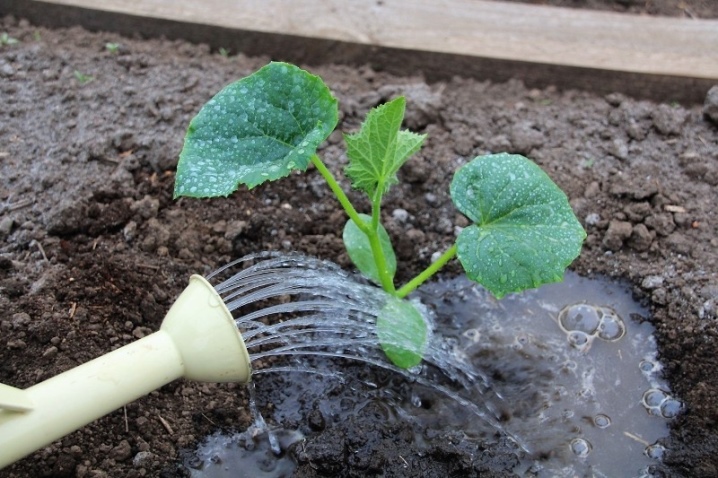
Spraying
At the stage of active fruiting, cucumber beds can be sprayed with an ash solution. This foliar dressing is usually done either early in the morning or late in the evening. It is not recommended to process your site in this way during the day. Plants can get burned due to heat treatment.
Less concentrated products are usually used to spray the area. It is necessary to treat the beds with a diluted ash solution regularly. This is usually done every 10 days. It is very important to spray the leaves not only from above, but also from the seamy side.
Thanks to spraying, all nutrients are absorbed faster by plants. Because of this, cucumbers immediately "come to life" and grow.
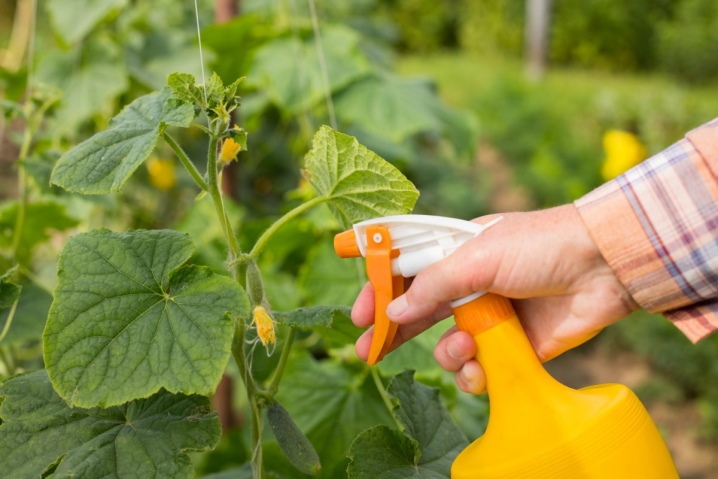
Dry ash treatment
Dry wood ash can be used to fertilize the site throughout the season.
- When landing. For the first time, dry ash is introduced into the soil when planting seedlings grown on a windowsill or in a greenhouse, to a permanent place. At this stage, no more than 10 grams of dry ash is added to each well.
- During flowering. During this period, as well as during the appearance of ovaries, the soil next to the bushes can also be sprinkled with ash. This is done in order to protect plants from common diseases and pests. The area covered with ash should be watered with warm water. It is important to do this both in an open area and in polycarbonate greenhouses. Thanks to watering, all nutrients reach the plant roots faster.
- After harvest. At this stage, the soil can also be fertilized with ash. A glass of dry powder is added for every 3 square meters of area. It is recommended to bring in ash during the digging of the site. Wood ash can also be mixed with well-rotted mullein. A glass of dry ash is added to the product bucket. The finished fertilizer is simply scattered over the area where cucumbers will be planted next year. They dig it up in the spring. This is how the fertilizer enters the soil.
It is worth remembering that wood ash does not mix well with mineral fertilizers.Therefore, it is not worth adding these products at the same time.
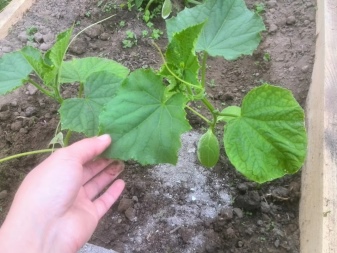
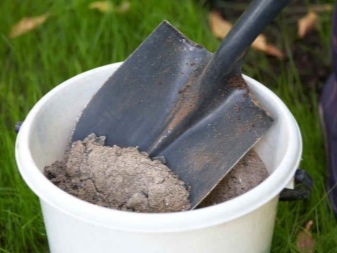
How to apply pest ash?
Wood ash is also useful in the fight against various pests. It helps to get rid of the following enemies of cucumbers.
- Sprout fly. To combat this pest, as well as with the cabbage flea, a dry product is usually used. You can add ash to the beds both in pure form and in a mixture with shredded tobacco. Usually, dry shoots are sprinkled with the product. This method is more efficient for greenhouses. If the cucumbers are grown outdoors, the protective ash layer will quickly wash off them.
- Aphid... It is recommended to fight this common pest using solutions with ash and soap. You can also add two tablespoons of urea to a container with such a product. Wait 2-3 days before using. Immediately after this, it will be possible to treat the area with infusion. Pay special attention to the bottom of each sheet. It is there that a large number of insects often hide.
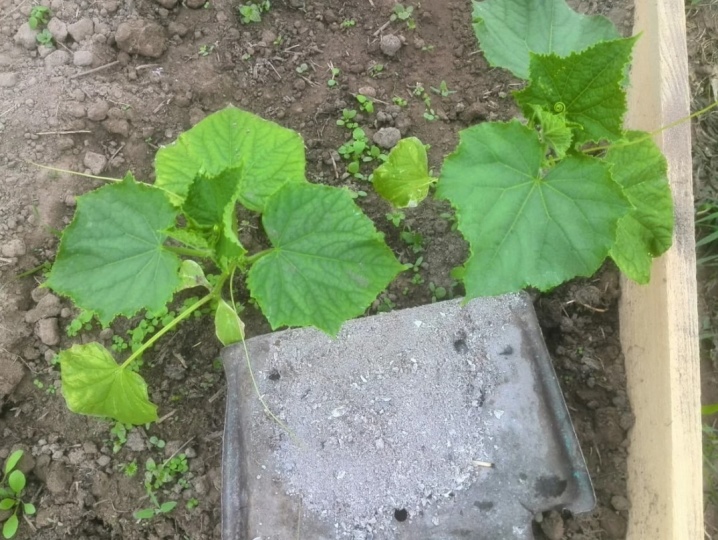
Treatment of the site with dry ash, as well as solutions based on it, also allows you to protect the beds with cucumbers from slugs and caterpillars. Ashes scattered on the ground prevent these pests from moving. Therefore, they leave the area treated with such products alone.
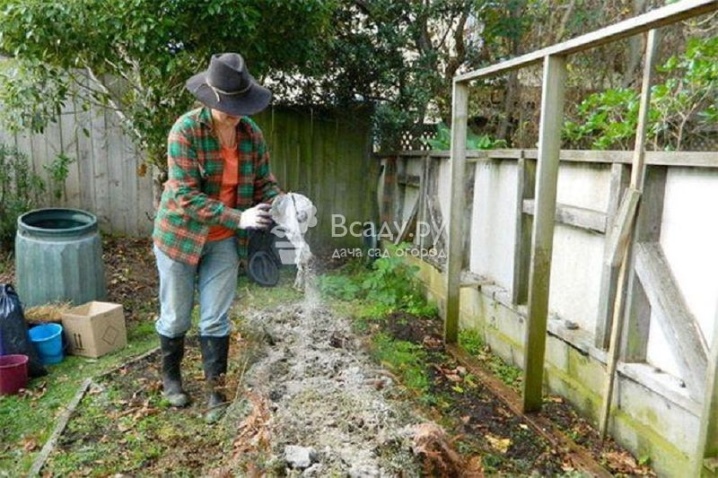
How to use to protect against disease?
Dry wood ash also helps fight fungal diseases. This product is great for protecting bushes from gray mold and powdery mildew.
For processing plants, a simple solution is used, consisting of 10 liters of warm water and a glass of dry ash. It is cooked in the evening and insisted during the night. In the morning, plants are watered with the finished product. This product is suitable for processing both adult plants and young seedlings.
It is worth remembering that this product is used only as a prophylaxis, because it is impossible to completely cure an adult plant from rot.
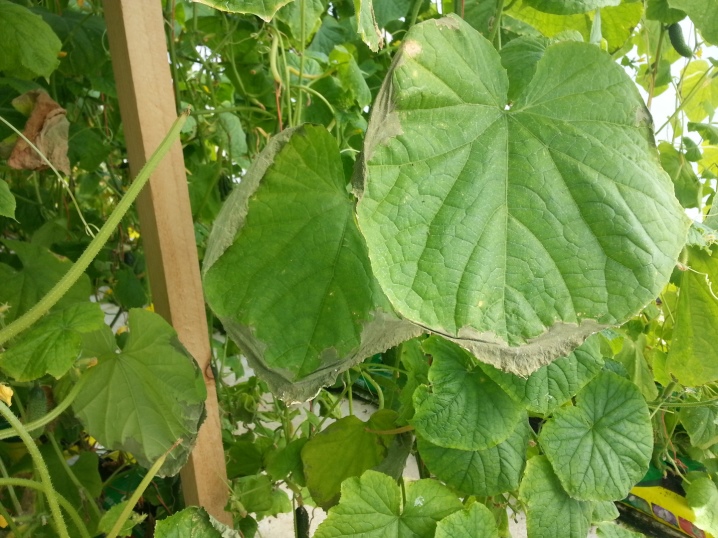
The mixture of wood ash and crushed coal will also protect plants from rot. These products are mixed in equal proportions. It must be added to the soil even when planting plants.... Add about 200 grams of the mixture to each well. You can also lay a layer of humus on top. It is possible to use a mixture of ash and coal at the stage of ovary formation. At this stage, dry ash is sprinkled on the soil next to the cucumbers. Small pieces of coal are scattered nearby. By the end of summer, the coals will dissolve in the soil, and nothing will be left of them.
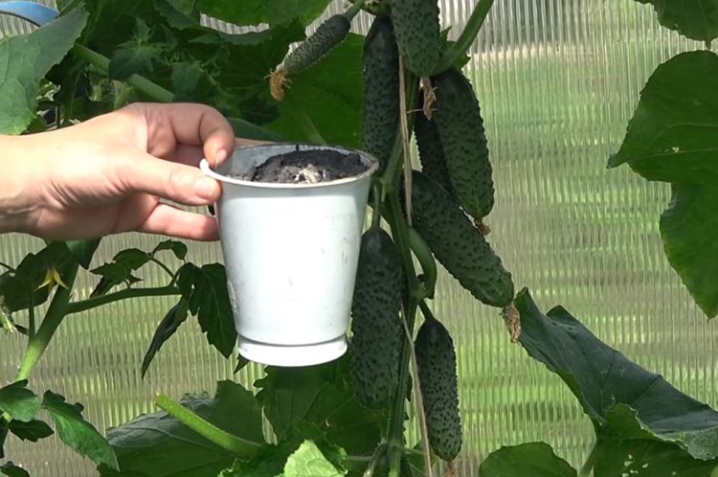
Application errors
Many novice gardeners make some mistakes in the process of preparing and using dressings.
- Improper storage. As a rule, wood ash is harvested in the fall. In this case, it can be safely used for feeding cucumber beds in early spring. In order for the product not to lose its useful properties, it must be stored in the correct conditions. It is very important that moisture does not get into the ash container. It is advisable to store it in tight bags or containers with lids. Ash should be in a dry place. This could be a pantry or a shed. You can store ash in this form for about two years. But it is better to use it next spring.
- Use of low-quality ash... For fertilizing the beds and the garden, it is strongly not recommended to use the product obtained as a result of burning garbage, as well as plants affected by diseases. Such ash will only harm the site. For feeding cucumbers, it is best to use high-quality ash left after burning dry branches, wood and fallen leaves. Ash from pears, apple trees and birches is considered the most valuable.
- Untimely application... Young cucumbers can be fed with wood ash only after at least two leaves appear on the seedlings.
- Using wood ash together with lime. If you simultaneously add two of these products to the soil at the same time, the cucumbers will become less tasty.
- Excessive use of wood ash... In the process of preparing infusions and solutions, it is important to observe the indicated doses of products.Feeding the bushes with wood ash is not too active and often. The increased content of minerals in the soil, which get there along with the ash, negatively affects the health of the plants.
- Watering with cold water. To prepare infusions with ash, you need to use warm water. Cucumbers, due to hypothermia, become more prone to fungal diseases. It is best to water the beds with settled water.
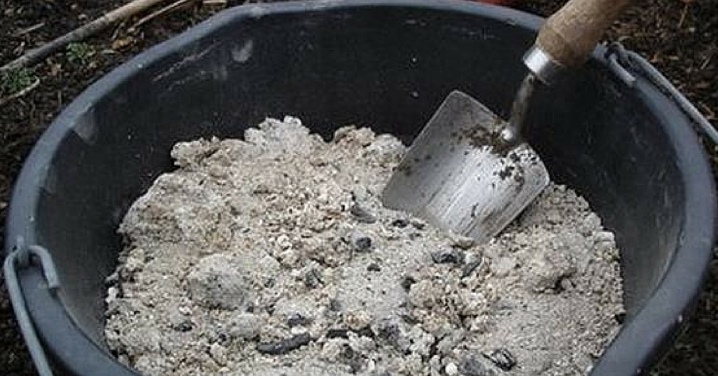
The correct use of wood ash helps to keep the cucumber beds in good condition and also significantly improves the quality of the crop. Therefore, having familiarized yourself with all the necessary information, you can safely apply such top dressing.
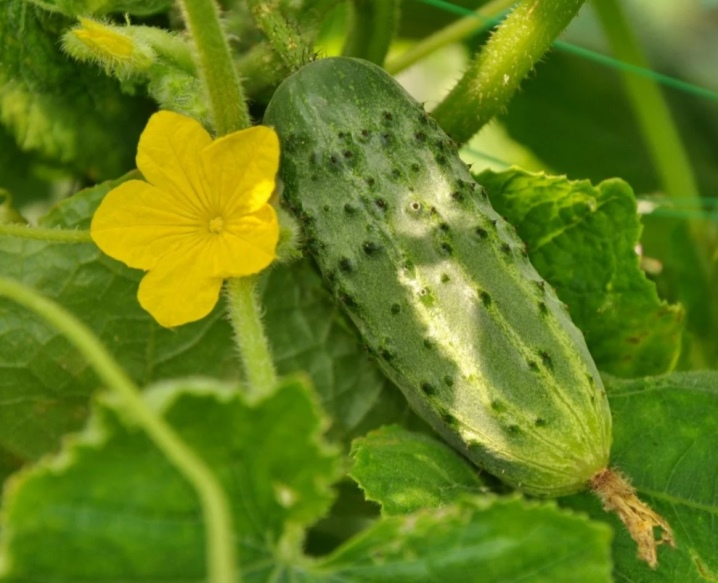







The comment was sent successfully.